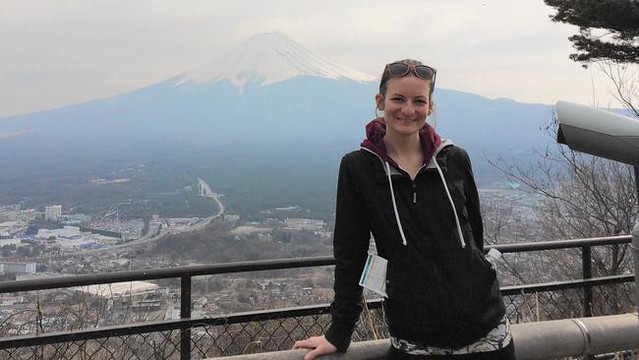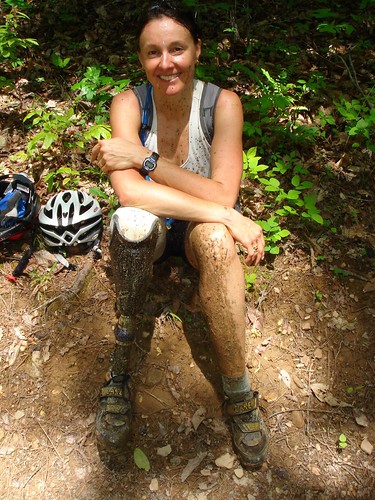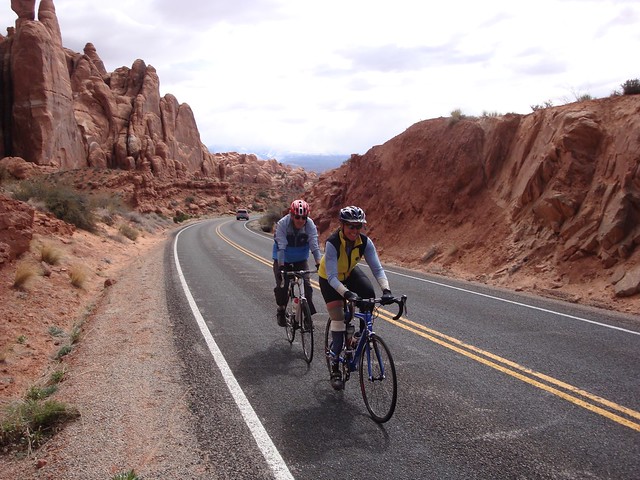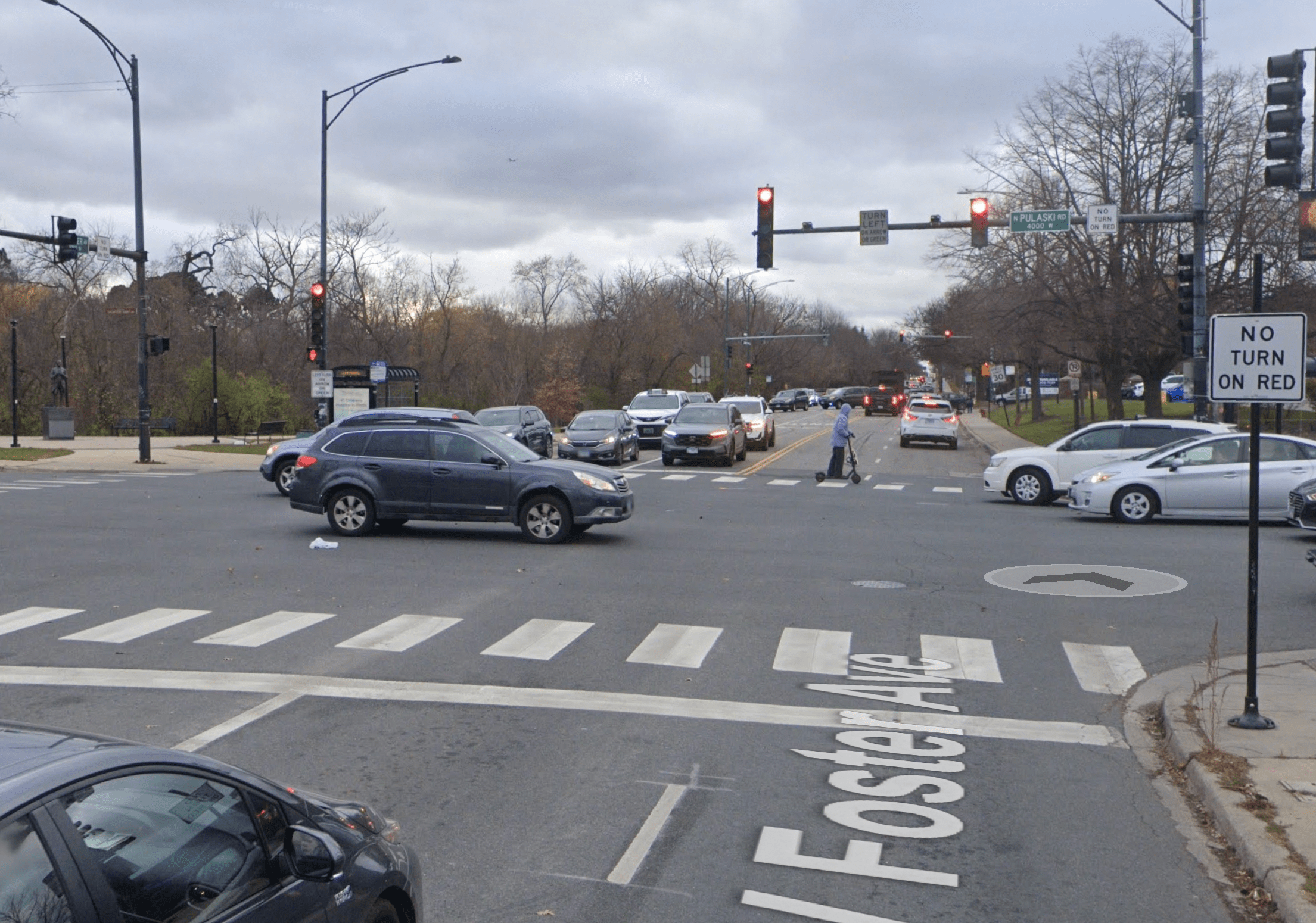
On September 23, Danielle “Dee” Palagi, 26, was biking home from her job as a special education teacher when she was struck by a northbound semi driver who turned east at the intersection of Roosevelt and Wood near the Illinois Medical Campus. Danielle survived, but her foot had to be amputated, and she also suffered a broken pelvis and fractured elbow.
Danielle’s father Larry Palagi told the Chicago Tribune that the teacher was also traveling north on Wood when the driver made a right turn without signaling or checking for bikes, knocking her over. Police News Affairs did not have immediate information as to whether the trucker has received any citations. Very similar acts of negligence by truck drivers resulted in the deaths of Chicago cyclists Virginia Murray, Lisa Kuiven, and Anastasia Kondrasheva this year.
Larry said his daughter has managed to remain optimistic despite the long road to recovery ahead, including several surgeries. “She’s very strong and positive,” Larry said. “She’s accepted what’s happened.” Relatives say the young woman is already setting recovery goals.
Danielle grew up in Naperville, and community members have come forward to offer support with a prayer service on her behalf last weekend and an upcoming fundraiser for her medical expenses at a local restaurant. A GoFundMe page set up by friends has already raised more than $24,000 to help cover expenses. Two Fridays ago, Easterseals Academy, where Danielle works, held a "Support Dee Day," with employees and students wearing colorful headbands in reference to Danielle's trademark headgear.
After I told Kati Rooney, a board member with the Active Transportation Alliance, about Danielle’s case, she offered to share her own story in hopes that it would provide some encouragement for Danielle as she faces the challenges of recovering from an amputation. In October 1997, at age 35, Kati was swimming in Lake Michigan when she was struck by a tour boat operator and her foot was severed by the propeller. She has since recovered from this setback to lead a very active lifestyle, including plenty of bicycling.
Kati was doing a training swim parallel to the concrete shoreline between North Avenue and Oak Street beach when the captain of a large Seadog tour speedboat piloted his craft illegally close to the shore. She saw the boat speeding straight towards her and dove down into the water to avoid being killed.
When Kati surfaced, she didn’t immediately feel pain. But when witnesses pulled her out of the water, she realized her foot had been cut off. By a lucky coincidence, a paramedic and a doctor were present, and the doctor was able to tie off the wound with a t-shirt to stop the bleeding. At the hospital her leg was amputated six centimeters below the knee.
Although Kati was out of the hospital within four days and her recovery went fairly smoothly, she was emotionally devastated by the loss of her limb. “A month after I was injured, I was at the Rehabilitation Institute of Chicago, feeling really miserable,” she said. “My therapist took me by the arm and marched me to the office of the coach for a team of swimmers with disabilities.”
Kati began swimming five mornings a week with the team, including people with more severe disabilities than her own, which she says helped her get perspective on her loss. As she struggled issues like PTSD and phantom pain, support from her teammates served as a kind of group therapy, which was crucial for her emotional recovery.
“Being around people who were doing stuff, who were feeling the joy of movement was really good for me,” Kati said. She also had to focus on raising two small children with her husband Jim and running her video production business, which helped her keep her mind off her worries. (A few years later, I appeared in a bike messenger safety video Kati produced.)
A couple months after she was injured, Kati took up biking again using a prosthetic leg, which she actually found easier than learning to walk again. She grew up in the small town of Sycamore, Illinois, where she biked everywhere as a child, partly due to having a German-born mother who didn’t believe in chauffeuring her kids everywhere, and she had never given up the habit as an adult.
Biking with a prosthetic was tricky at first – early on she had an embarrassing, but harmless, crash in which her leg came off and slid into the intersection of Clybourn and Racine. But she soon figured out that clipless pedals gave her more control, and within a year she was regularly commuting around Chicago and doing 30-mile road rides in the Michigan countryside. In contrast, she didn’t feel like she was able to walk well until she got a better prosthesis six years after the injury.
Kati wound up trying many of the different adaptive sports programs offered by the rehabilitation center, including competitive swimming on a national level, kayaking, sailing, running, and even downhill skiing. “The disability sports thing was kind of new at the time, and it was a very welcoming community,” she said. She’s remained active since then, and actually considers herself more athletic than she was before the injury.
Kati said that if she had the opportunity to offer advice to Danielle, she would tell her that life will get better in the future. “At first I couldn’t see how I was going to get from my front door to the second floor, take a bath, take care of my kids, or do my job,” she recalled. “It may be hard for Danielle to imagine it right now, but everything will come together and she’ll figure out how to keep living her life, and it will all be fine.”
“Especially because she’s a female, I want her to know that she will still be beautiful, she will still be strong, she will still be able to experience love and joy and the feeling of being physically fit,” Kati added. “That one truck running her down doesn’t have to define her relationship with her bicycle.”
The 19th anniversary of Kati’s injury is coming up next week, and while this used to be a depressing time of year for her, she now feels differently. “I feel like my life just took a different course, and I wound up meeting people that I wouldn’t have met otherwise. So in a way my life really has become richer. I know that’s a super-hard thing for Danielle to image right now, but it’s true.”






